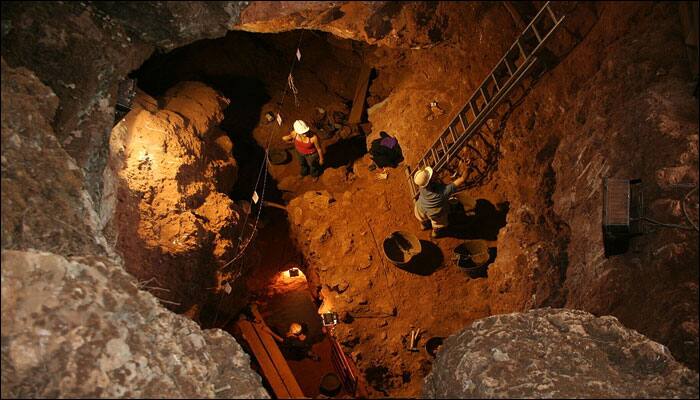New Delhi: Archaeology is a fascinating field that has time and again led to amazing discoveries involving baffling artefacts and scenes from billions of years ago, be it Egyptian tombs, carvings, ancient tools from primitive or medieval times, ruins, etc.
It is safe to concur that the latest discovery is just as captivating as the rest of them. An excavation carried out in the Narmada valley at Mehtakhedi village under Khargone district, has given rise to the discovery of 350 archaeological remains which the experts claim to be 50,000 years old.
"The excavation conducted by Shridhar Vakankar Archaeological Research Institute led to the discovery of 350 archaeological remains which the experts claim to be 50,000 years old," Anupam Rajan, commissioner, Archaeology Department of Madhya Pradesh under which the institute functions, said today.
"The work to explore micro relics was being carried out by dissolving and filtering the soil obtained from the excavation," he added.
Rajan informed that an team led by the former head of the Department of archaeology at Deccan College in Pune Prof Sheela Mishra was formed after obtaining permission from the Archaeological Survey of India (ASI) in January this year.
The team included Institute's research officer Jinendra Jain, research assistant Dhruvendra Singh Jodha and research scholars of Deccan College Neetu Agarwal, Namrata Vishwas and Garima Khansali.
"The excavation work was started in the second week of February by Prof Mishra and the team. 350 antiquities were found during excavation. Further conclusions will be drawn after analysing them," he added.
Rajan said that the development of human civilisation was studied on the basis of underground deposition, ancient geographical analysis and types of apparatus.
In 2009, the team led by Prof Mishra had found the pieces of ostrich's eggs, which were related to modern human civilisation, during the excavation at the same site.
"The date of microblade was estimated 50,000 years old by Physical Research Laboratory-Ahmedabad. The carbon date of ostrich's egg was verified as over 42,000 years old," he added.
Rajan said that the conclusion of archaeological and biological research conducted recently has proved that humans of today, despite several dissimilarities, are related to more than one lakh year old extended groups of Africa.
"Human civilisation of Mehtakhedi area is related to African human group spread in the world over 50,000 years ago. The ancient relics found here certify that ancient and rare antiquities are available in abundance in the state," he added.
(With PTI inputs)
















